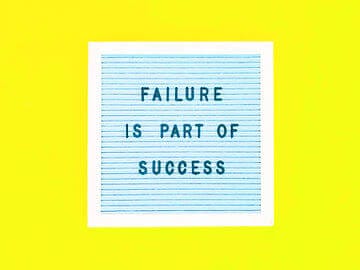

Organizational Wellness Challenge – Fail Fast to Succeed More
Facebook
Twitter
LinkedIn
WhatsApp
How are failures viewed in your organization? Are they seen as mistakes or shortcomings? Or are they embraced, celebrated, and used to inform a solution? As the business environment becomes increasingly complex, organizations are finding they need to respond with speed rather than perfection. The solution: Failure, but not just any failure. A study from Northwestern University’s Kellogg School of Management found it’s not enough to fail once. You have to do it over and over again in a short amount of time. The key here is integrating what you’ve learned into the solution to fail well. Successful failures keep the parts that work and use feedback to improve the rest. Unsuccessful failures make the wrong changes slowly. Instead of being caught in analysis paralysis, choose to do something—even if it fails—and go from there.
This month we challenge leaders to embrace a culture of learning that celebrates failure as a critical component to success. As your team embraces the idea, they gain practice in experimenting and adjusting as needed. They become better at failing, knowing their mistakes are respected as a contribution to overall success. How can you get them there?
Set the example. You as the leader need to talk about failures and what you learned from them. Employees need to hear you say that failure is a good thing and then they need to see you follow through. They need to see examples of how you handle a failure in a way that celebrates what was learned without finger pointing or punishing anyone.
Build failure into how your team works. Your team needs to agree on what failures and successes look like and they need to understand the next steps. When a failure occurs, what happens? Create a systemic way to integrate the feedback from failure into the team’s work processes and solutions. Consider frequent task or project retrospectives where lessons are openly shared without judgment.
Remove barriers. You need to tell, then show, your team that failures are not only tolerated, but they are also celebrated. Encourage intelligent risk taking.
Reframe failure. When we decouple failure from fear, teams are freer to explore creative solutions. One way to accomplish this reframing is to think of failure as feedback. This reframing reduces negative psychological impact and pushes teams to adapt. As Ed Catmull, president of Pixar and Disney Animation, says, “Mistakes aren’t a necessary evil. They aren’t evil at all. They are the inevitable consequence of doing something new.”
Be the leader who reframes adversity and failure as an opportunity to teach, learn, and grow. CEEK a Better Way®!



